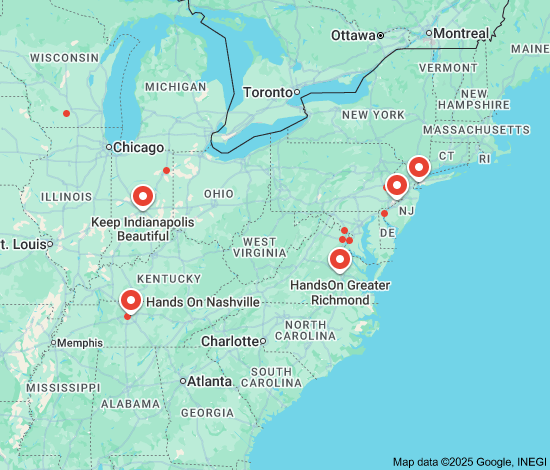The Power of Local Volunteering
Volunteering in your local community can have a profound impact on both the volunteers and the community itself. By giving your time and skills to help others, you not only make a difference in people’s lives but also contribute to building a stronger, more connected community.
Local volunteering allows you to directly see the impact of your efforts. Whether you are helping at a local food bank, cleaning up a park, or tutoring students, you can witness the positive change you are making firsthand. This sense of fulfillment and accomplishment can be incredibly rewarding and motivating.
Furthermore, volunteering locally creates a sense of unity and solidarity within the community. By working together towards a common goal, volunteers form bonds with each other and with the people they are helping. This sense of connection fosters a supportive environment where everyone feels valued and appreciated.
Local volunteering also provides an opportunity to learn new skills, gain valuable experience, and expand your network. Whether you are looking to explore a new career path or simply want to give back, volunteering can offer personal growth and development opportunities that can benefit you both professionally and personally.
Overall, local volunteering is a powerful way to make a difference in your community while also enriching your own life. So why not get involved today? Find a local organization or cause that resonates with you and start making a positive impact right in your own backyard.
6 Benefits of Local Volunteering: Strengthen Community, Build Relationships, and Make a Visible Impact
- 1. Directly impact your community
- 2. Build strong relationships with fellow volunteers
- 3. Gain valuable skills and experience
- 4. Foster a sense of unity and solidarity
- 5. Make a tangible difference that you can see
- 6. Contribute to creating a more connected and supportive community
Challenges of Local Volunteering: Availability, Recognition, Burnout, Balance, and Emotional Strain
- Limited availability of volunteer opportunities in certain areas
- Lack of recognition or appreciation for volunteers’ efforts
- Potential for burnout due to overcommitment or lack of boundaries
- Difficulty balancing volunteering with other personal or professional responsibilities
- Risk of encountering challenging or emotionally draining situations while volunteering
1. Directly impact your community
Local volunteering offers the unique opportunity to directly impact your community in a meaningful and tangible way. By dedicating your time and effort to local causes such as food drives, clean-up initiatives, or educational programs, you can see the immediate effects of your contributions on the people around you. This hands-on approach allows volunteers to address specific needs within their community and make a positive difference that is felt locally. From improving public spaces to supporting vulnerable populations, local volunteering empowers individuals to actively participate in creating a stronger, more vibrant community for everyone to enjoy.
2. Build strong relationships with fellow volunteers
Local volunteering offers a unique opportunity to build strong relationships with fellow volunteers. Working together towards a common goal creates a sense of camaraderie and solidarity among volunteers, fostering bonds that can last a lifetime. The shared experience of giving back to the community not only strengthens interpersonal connections but also creates a supportive network where individuals can lean on each other for encouragement, inspiration, and friendship. Building relationships with fellow volunteers adds a valuable social dimension to the volunteering experience, making it not only fulfilling in terms of impact but also enriching in terms of personal connections.
3. Gain valuable skills and experience
One significant benefit of engaging in local volunteering is the opportunity to gain valuable skills and experience. By dedicating your time to helping others in your community, you can develop a wide range of practical skills, such as communication, teamwork, leadership, and problem-solving. These experiences not only enhance your personal growth but also provide you with valuable assets that can boost your resume and open up new opportunities in the future. Whether you are looking to explore a new career path or simply expand your skill set, local volunteering offers a hands-on way to learn and grow while making a positive impact on those around you.
4. Foster a sense of unity and solidarity
Local volunteering has the remarkable ability to foster a sense of unity and solidarity within communities. By coming together to support a common cause, volunteers build connections with one another and with those they are helping. This shared experience creates a strong bond that transcends differences and promotes a feeling of togetherness and support. Through local volunteering, individuals can work hand in hand towards a shared goal, strengthening the fabric of their community and fostering a sense of unity that benefits everyone involved.
5. Make a tangible difference that you can see
Local volunteering offers the unique advantage of allowing volunteers to make a tangible difference that they can see. Whether it’s planting trees in a local park, serving meals at a community kitchen, or helping to build homes for families in need, the impact of your efforts is visible and immediate. This direct connection between your actions and the positive change in your community not only provides a sense of accomplishment but also serves as a powerful motivator to continue giving back.
6. Contribute to creating a more connected and supportive community
Local volunteering plays a crucial role in contributing to creating a more connected and supportive community. By coming together to support local causes and initiatives, volunteers build relationships with one another and with the people they are helping. This sense of connection fosters a strong community bond where individuals feel valued, supported, and part of something greater than themselves. Through their collective efforts, volunteers not only make a tangible impact on the community but also create a network of support that enhances the overall well-being and resilience of the community as a whole.
Limited availability of volunteer opportunities in certain areas
In some regions, the limited availability of volunteer opportunities poses a significant challenge for individuals eager to contribute to their local communities. This scarcity can make it difficult for people to find meaningful ways to get involved and give back. It may also lead to increased competition for existing volunteer positions, potentially excluding some individuals from participating in community service activities. As a result, the lack of diverse and accessible volunteer opportunities in certain areas hinders the collective efforts to address social issues and create positive change at the local level.
Lack of recognition or appreciation for volunteers’ efforts
One significant con of local volunteering is the lack of recognition or appreciation for volunteers’ efforts. Despite dedicating their time and energy to support their community, volunteers may often go unnoticed or unappreciated for the valuable work they do. This lack of acknowledgment can lead to feelings of disillusionment and demotivation among volunteers, potentially causing them to become disengaged or less committed to their volunteering activities. Recognizing and appreciating volunteers for their contributions is essential in fostering a positive and supportive environment that encourages continued participation and ensures the sustainability of local volunteer initiatives.
Potential for burnout due to overcommitment or lack of boundaries
One significant con of local volunteering is the potential for burnout, which can result from overcommitment or a lack of boundaries. When individuals take on too many volunteer responsibilities or struggle to set limits on their time and energy, they may experience exhaustion, stress, and feelings of being overwhelmed. Burnout can diminish the effectiveness of volunteers and lead to decreased motivation and satisfaction with their efforts. It is essential for volunteers to prioritize self-care, establish clear boundaries, and strike a balance between giving back to the community and taking care of their own well-being to prevent burnout and sustain their long-term commitment to local volunteering.
Difficulty balancing volunteering with other personal or professional responsibilities
One significant challenge of local volunteering is the difficulty in balancing volunteer commitments with other personal or professional responsibilities. With busy schedules and multiple obligations, finding the time to dedicate to volunteering can be a daunting task. Juggling work, family, and social commitments alongside volunteering can lead to feelings of overwhelm and burnout. It requires careful planning, time management, and setting priorities to ensure that volunteering remains a fulfilling experience without causing undue stress or neglecting other important aspects of life.
Risk of encountering challenging or emotionally draining situations while volunteering
One potential downside of local volunteering is the risk of encountering challenging or emotionally draining situations while dedicating your time and efforts to a cause. Volunteers may find themselves facing difficult circumstances, such as working with individuals experiencing homelessness, supporting victims of abuse, or witnessing poverty firsthand. These experiences can be emotionally taxing and may require volunteers to navigate their own feelings of empathy, sadness, or helplessness. While these challenges can be an opportunity for personal growth and empathy-building, they can also take a toll on volunteers’ mental and emotional well-being if not properly addressed and managed.




Leave a Reply